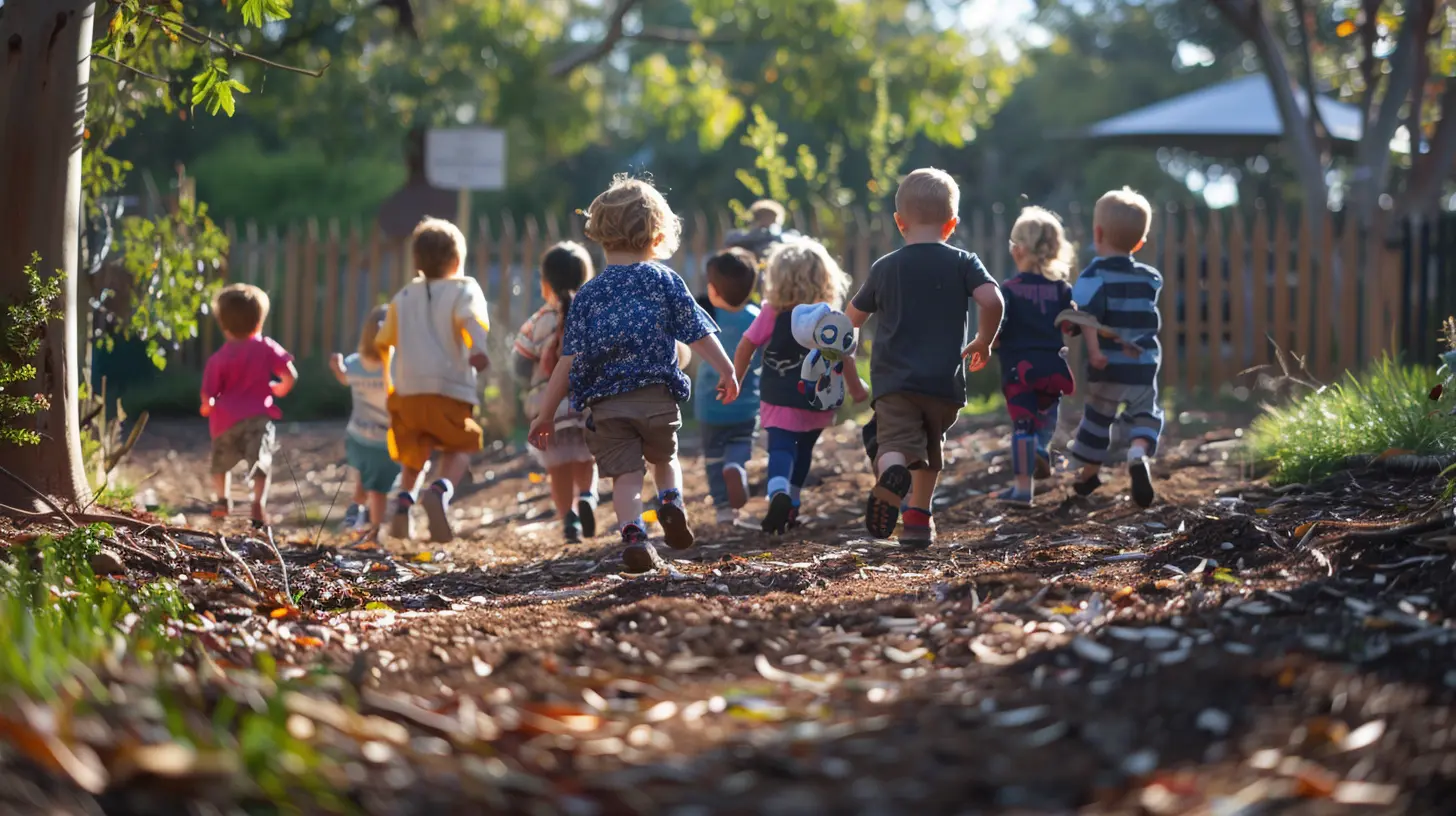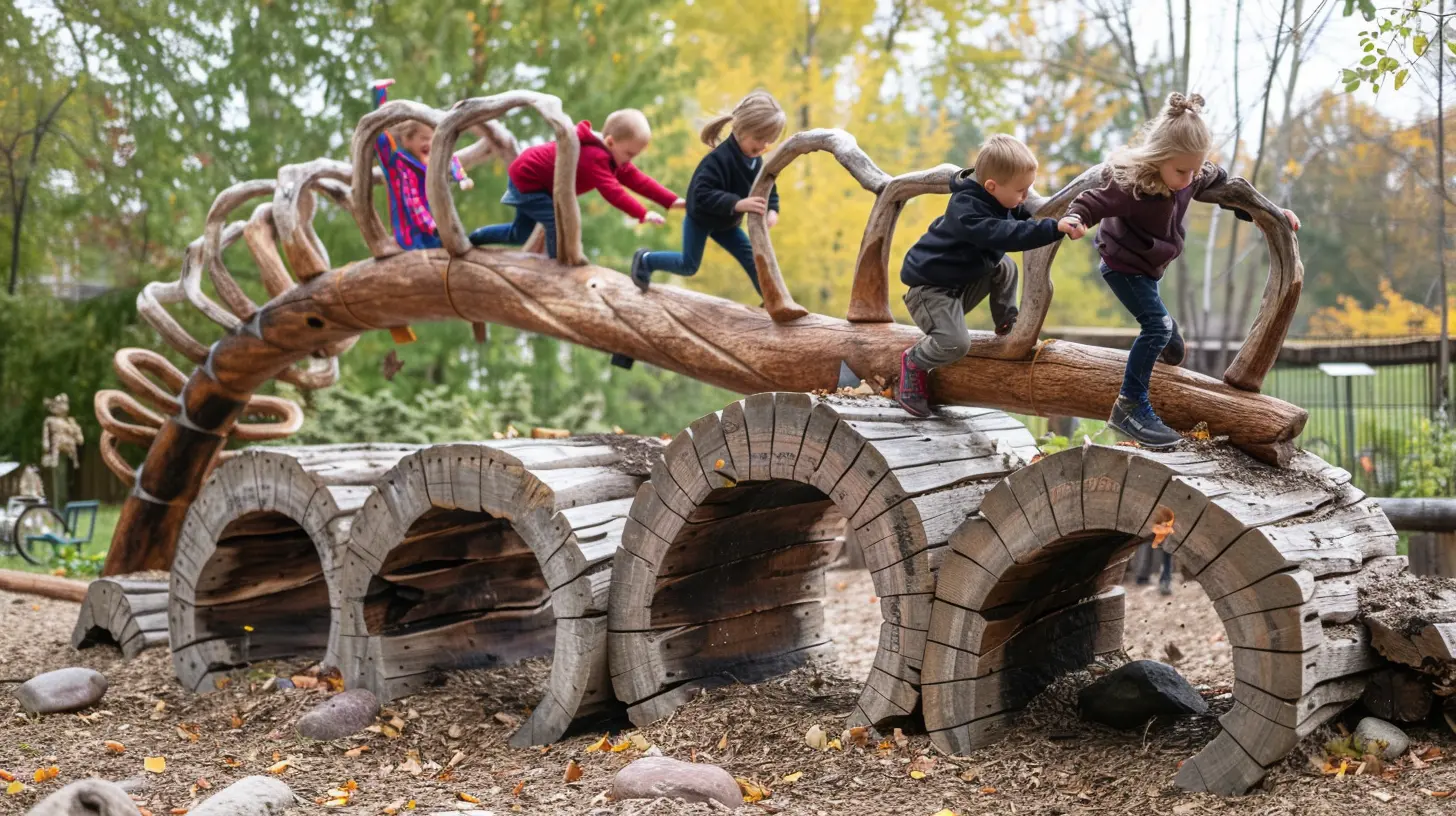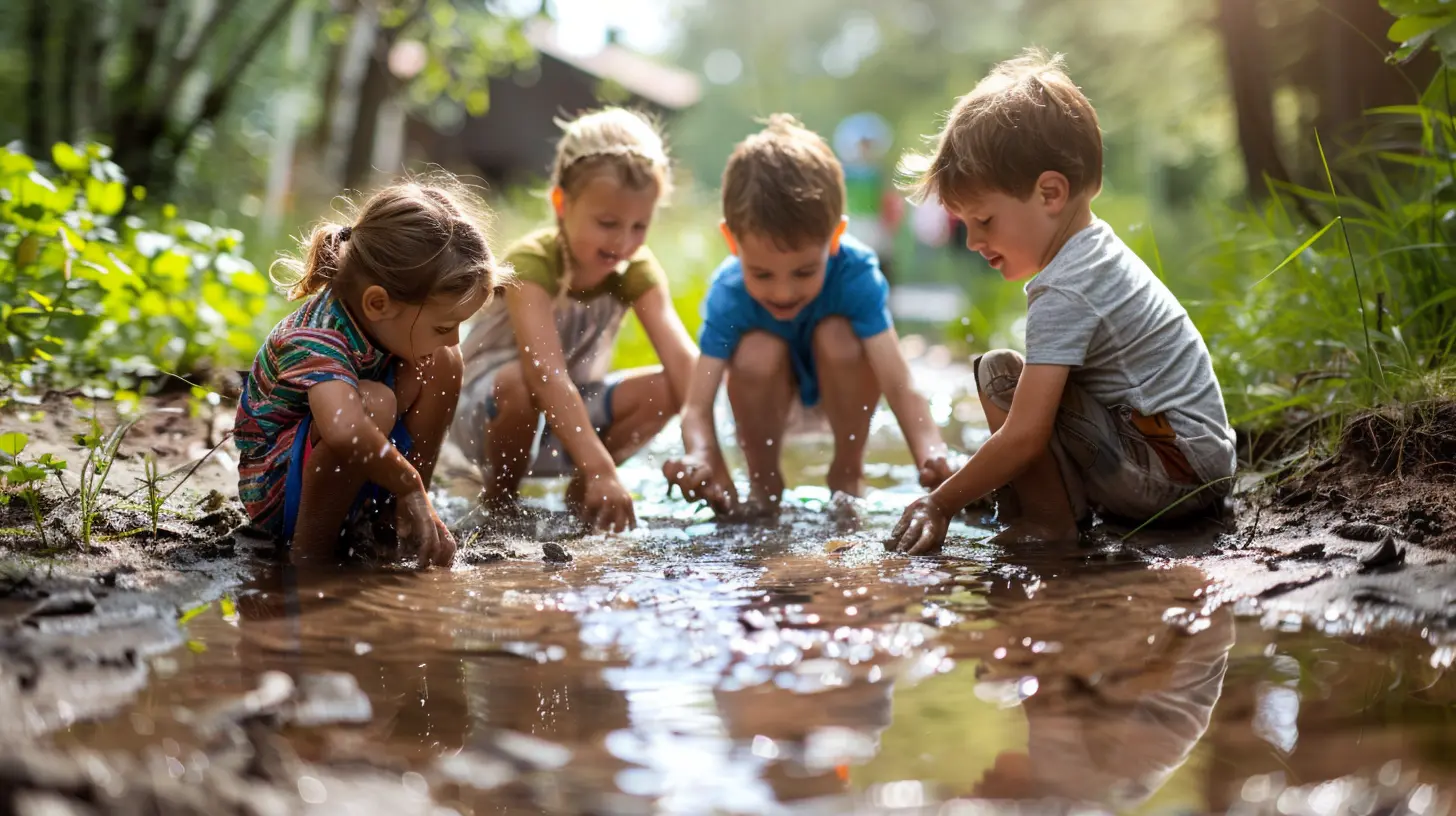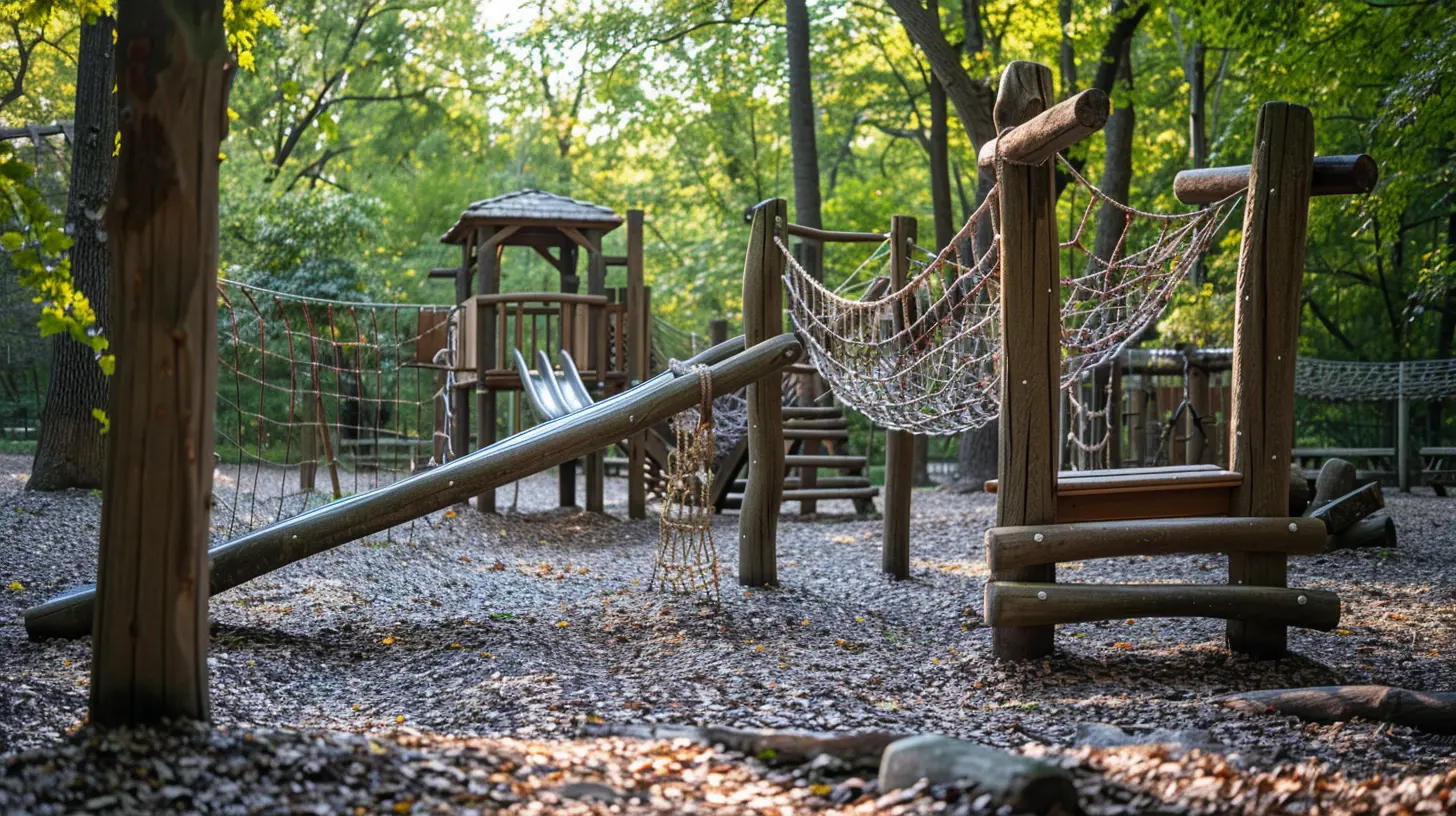Encouraging Outdoor Play for Better Health and Mood
21 July 2025
Hey there! If you've ever watched a kid giggle while flying down a slide or jump through puddles like they’re on a secret mission, you know there’s something truly magical about outdoor play. But here's the thing—it’s not just kids who benefit. Whether you’re 5, 25, or 75, spending time outside and moving your body can work wonders for your health and mood. And in a world where screens are more tempting than swings, encouraging outdoor play is more important than ever.
Let’s dive deep into why outdoor play isn’t just fun—it’s essential.

Why Outdoor Play Matters More Than Ever
We live in a time where many of us, especially kids, are glued to screens. From endless streaming to video games or social media scrolling, we've slowly traded climbing trees for tapping screens. And while a bit of tech time isn't bad, too much of it? Not great.Outdoor play isn’t just about burning energy—it’s the natural way humans are wired to thrive. It challenges the body, clears the mind, and nurtures the soul.

The Physical Perks of Outdoor Play
Let’s start with the obvious: movement. Running, jumping, climbing, throwing, catching—it’s all physical activity wrapped in the package of fun.1. Builds Stronger Bodies
When kids play outside, they use muscles they don’t engage when sitting indoors. Balancing on a log, swinging on monkey bars, or riding a bike all help develop coordination, strength, and flexibility.For adults, outdoor activities like hiking, jogging, or even gardening keep the body active, heart healthy, and joints moving. You know that feeling after a walk in the park? That’s your body thanking you.
2. Supports a Healthy Weight
Let’s face it—when you’re outside, you move more. Outdoor play helps burn calories in a way that doesn’t feel like exercise. It's like sneaking veggies into a smoothie. You get the benefits without noticing.And for kids, starting these habits early is key. Active children are more likely to become active adults.
3. Boosts Immune Function
Fresh air, sunlight, and a bit of dirt can actually give your immune system a nice little kick. Exposure to different microbes outdoors helps build a stronger immune response. Plus, sunlight helps the body produce Vitamin D, which plays a big role in immune health.
Brain Benefits: Nature as a Natural Antidepressant
Stepping outside isn’t just a treat for your muscles—it’s food for your mind. There’s a reason people say “I need some fresh air” when they’re overwhelmed.1. Reduces Stress and Anxiety
Nature has a calming effect. Just being surrounded by greenery, hearing birdsong, or feeling the sun on your face can reduce cortisol—the stress hormone. Outdoor play helps lower anxiety levels in both kids and adults.2. Boosts Mood and Happiness
Ever noticed how you just feel better after being outside? That’s not just in your head—sunlight increases the production of serotonin, the brain’s natural “feel good” chemical.One study after another shows that spending time outdoors is linked to lower rates of depression and improved overall mood.
3. Improves Focus and Attention
Ever heard of “nature’s classroom”? It’s real. Children who play outside regularly show improved focus and fewer symptoms of ADHD. For adults, outdoor movement can help shake off mental fatigue and boost productivity.Basically, when your mind feels like a cluttered desk, nature helps you tidy up.

Outdoor Play and Social Skills: The Human Connection
Playing outside also has a magical way of bringing people together. Think about it—when kids are at the playground, they’re not just running around; they’re learning how to share, solve problems, and communicate.1. Teamwork and Communication
Outdoor games often require cooperation—whether it’s a game of tag, building a fort, or organizing a scavenger hunt. These moments help kids (and adults) learn how to work together, listen, and express ideas.2. Builds Confidence and Independence
Climbing a tree or trying something new in the great outdoors helps boost confidence. Success feels more real when it isn’t handed over but earned through effort and perseverance.And let’s be honest—there’s something empowering about getting a bit dirty, testing your limits, and realizing you're capable of more than you thought.
The Indoor-Outdoorsy Balance: How Much Is Enough?
So, how much outdoor play do we actually need?- For kids aged 5-17, experts recommend at least 60 minutes of physical activity a day, preferably outdoors when possible.
- Adults should aim for at least 150 minutes of moderate-intensity activity per week.
But it’s not just about ticking boxes—it’s about making outdoor play a fun and natural part of everyday life.
Clever Ways to Encourage More Outdoor Play
Sometimes, the biggest challenge is just getting started. If your kids groan when you suggest going outside, or if you find yourself stuck in an indoor routine, here are some tips to break the cycle:1. Make It a Family Affair
Kids mirror what they see. If you’re pumped about going for a walk, a bike ride, or an outdoor picnic, your kids will catch that enthusiasm. Plus, it’s a great bonding opportunity.2. Create an Outdoor Routine
Can you squeeze in a quick walk before dinner? How about 20 minutes in the backyard after school? Consistency turns outdoor time into a habit rather than a chore.3. Turn Chores into Mini-Adventures
Watering the garden? Turn it into a game. Walking the dog? Turn it into a scavenger hunt walk. Raking leaves? That’s just a pile of fun waiting to happen.4. Keep It Simple and Spontaneous
You don’t need fancy equipment. A stick becomes a wand, a hill becomes a mountain, and a puddle—well, that’s basically a waterpark if you're young (or young at heart).5. Limit Screen Time Gently
Instead of banning screens (which can lead to resistance), create "green time" that naturally balances screen time. For example, 30 minutes of outdoor play = 30 minutes of screen time. It’s a fair trade.The Role of Schools and Communities
Encouraging outdoor play shouldn’t fall only on parents. Schools and local communities play a huge role too.1. Outdoor Learning Spaces
More schools are embracing outdoor classrooms, gardens, and play-based curriculums. When kids learn outside, they stay engaged longer and retain more information.2. Accessible Parks and Playgrounds
Communities can promote outdoor play by maintaining safe, clean, and fun public spaces. Think trails, open fields, bike paths, and nature centers.3. Outdoor Events and Clubs
From nature hikes to summer camps, local events give families a chance to connect with the outdoors in fresh and exciting ways.
The Long-Term Impact: Why It All Matters
Let’s zoom out. Encouraging outdoor play isn’t just about today—it’s about building a foundation for lifelong health and happiness.Kids who run around outside grow into adults who know how to manage stress, stay active, and appreciate nature. Adults who make time for nature tend to live longer, happier lives with fewer chronic illnesses.
It’s not just good for individuals—it’s good for society too. Healthier people mean lower healthcare costs, stronger communities, and a more connected world.
Final Thoughts: Let Nature Be Your Playground
We can’t control everything in life, but one thing we can do is step outside. Whether it’s five minutes or five hours, every moment counts. Nature is always open, always free, and always ready to lift your spirits and stretch your legs.So grab your sneakers, leave your phone behind, and go find your next outdoor adventure. Whether you’re swinging from monkey bars or sitting on a park bench soaking in the sun, your mind and body will thank you.
And if you need a little push to get started? Just remember this: the best therapy sometimes starts with fresh air and a little dirt under your nails.
all images in this post were generated using AI tools
Category:
Childrens HealthAuthor:

Tiffany Foster
Discussion
rate this article
1 comments
Quincy Morrow
Who needs a gym when you have a backyard and a vivid imagination? Outdoor play is like a cardio party with nature as the DJ! Whether it's chasing squirrels, building a makeshift fort, or impromptu dance battles with the wind, remember: a little dirt just adds to the flavor of life!
August 4, 2025 at 4:47 AM

Tiffany Foster
Absolutely! Outdoor play sparks creativity and joy, making fitness fun and refreshing. Embrace the dirt and let nature be your playground!


